With Oasis re-issuing Definitely Maybe two decades after its original release, the JOE Team decided to pay tribute to their favourite British albums of the decade that music certainly didn’t forget.
Each week in Stop, Look and Listen, the JOE Team wax lyrical about the books we’ve been reading, television shows we’ve been watching and music we’ve been listening to.
However, with Oasis
announcing the re-release of Definitely Maybe 20 years after its original release, our kids in JOE Towers decided to dedicate this week's Stop, Look and Listen to our favourite albums from the same era made by bands from the same general area, because Oasis weren’t the only successful British band in what was something of a golden age for British music. Apart from M-People, of course.
The albums selected are pieces of work that the individual members of the JOE team felt (and remember, THIS IS PURELY A MATTER OF OPINION) were definitely better than the admittedly excellent
Definitely Maybe and much like Father Dougal daring to tell Father Damo he preferred Blur, we knew the title of the piece would attract the attention of Oasis fans.
So without further ado, prepare to take a nostalgic trip back to 20 or so years ago to remember some of the best music of the era and feel free to ridicule our suggestions and add your own in the comment box below.
Radiohead – OK Computer (Conor Heneghan)
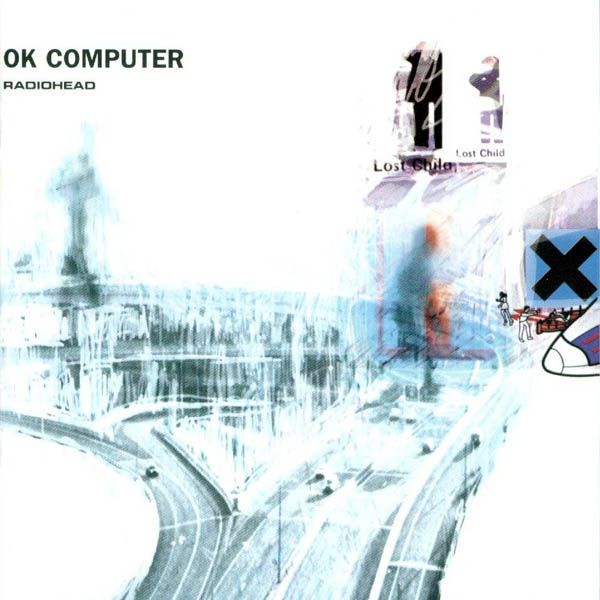
To a lot of Irish people, the overwhelming image associated with Radiohead’s
OK Computer is of a fragile priest played by Tommy Tiernan in the final episode of Father Ted whose mood changes from outwardly positive to utterly depressed in a matter of seconds upon hearing ‘Exit Music (For a Film)’ on the bus home.
Indeed, it was hard to express an admiration for Radiohead to non-Radiohead fans back in the day without hearing a response along the lines of ‘How can you listen to that depressing shite?’ but the truth is, they just didn’t understand.
While it was undoubtedly sombre at times – ‘Climbing Up The Walls’, for instance, is pretty bleak as well – Radiohead’s third album is a masterpiece, undoubtedly their finest work and deservedly acclaimed as one of the best albums of all time.
One of those albums you could easily sit through from beginning to end – yes, even ‘Fittier, Happier’ – it starts out on a purposeful note with the first chords of ‘Airbag’, blends seamlessly into ‘Paranoid Android’ and encapsulates a heady mix of genres in just under an hour’s worth of music that influenced any amount of bands that followed.
17 years on, it still sounds as good as ever. In fact, I think I might just go have a listen right now.
Manic Street Preachers – Everything Must Go (Adrián Collins)
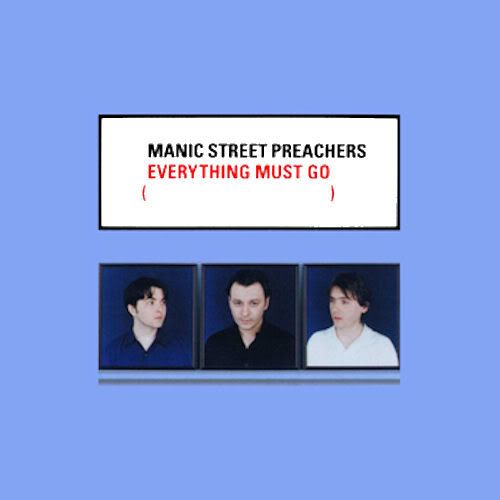
Off the bat I will admit that I have had a long-running mancrush on James Dean Bradfield that has led to me desperately wanting a Gibson Les Paul Studio 1990 Custom in Alpine White with gold hardware since the age of 12. This sensation has refused to dissipate over time and although I have never been, and will probably never be, in the possession of the requisite €3000 to spare on a purchase that I have longed for with a white hot intensity matched only by the brilliant shade of the guitar itself, I still want it.
Anyway, enough about that, we're here to talk about albums, not our favourite guitars ever. That guitar is number one, in case that wasn't clear enough.
Everything Must Go was the first album by the Manics where there was little influence from Richey Edwards, who disappeared in the mid 1990s, and bassist Nicky Wire was the man behind most of the lyrics, writing about plenty of political and social themes, as was his wont.
Musically, it was excellent, and made use of strings, synths, and plenty of different things that the Manics had not really used on albums such as
Gold Against the Soul or
The Holy Bible. It was also their most commercially successful album to date, with huge singles such as 'Australia' (the theme tune for Renford Rejects) and 'Kevin Carter' making the Welsh rockers household names, while 'Design For Life' is not only an amazing song but was also a massive chart hit and brings us back memories of long summer evenings playing Subbuteo on the bedroom floor. The video also features
that guitar. Sigh...
http://www.youtube.com/watch?v=TfEoVxy7VDQ
The Chemical Brothers – Surrender (Oisín Collins)
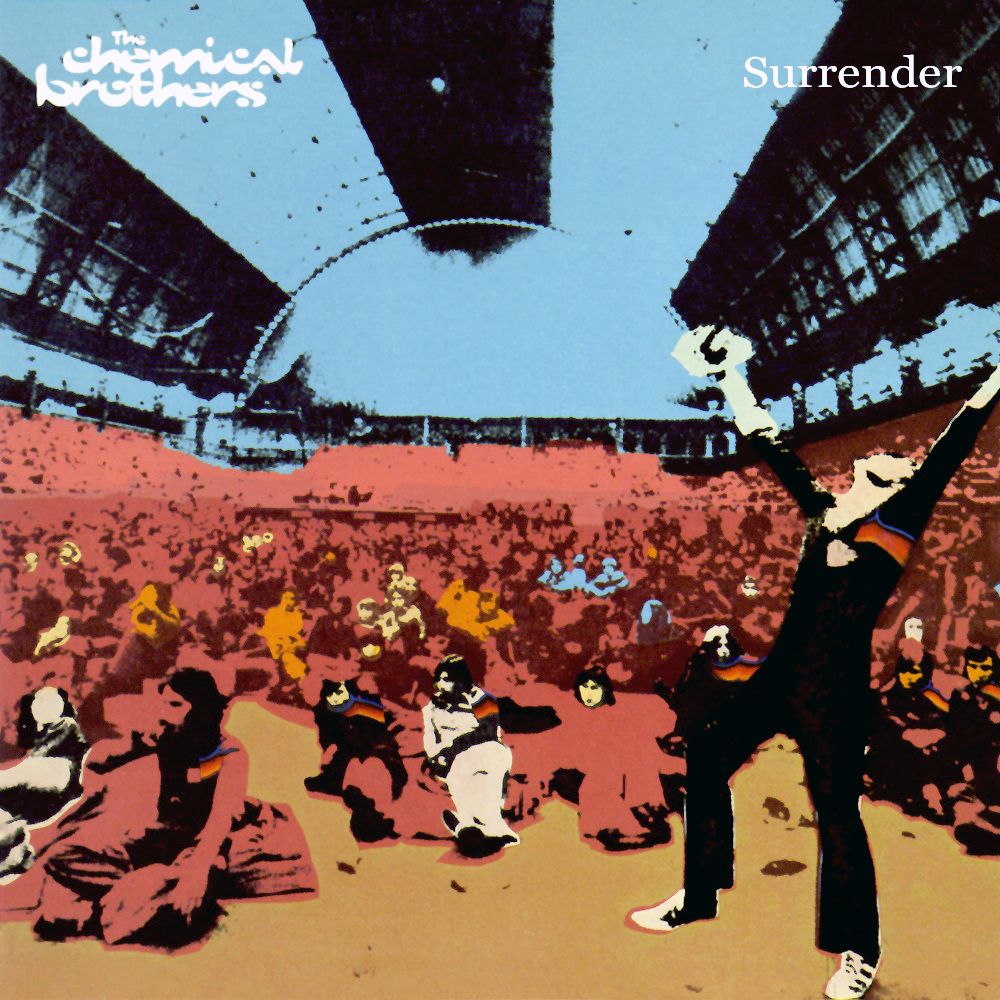
Having never been a big Oasis, or Brit rock, fan (let the hate-filled comments commence) my favourite British album of the 90’s features a slightly more electronic beat than a lot of the albums that dominated the era. So with that in mind my pick has got to be
Surrender by Tom Rowlands and Ed Simons, aka. The Chemical Brothers.
Released on June 21, 1999,
Surrender was the third studio album from the British duo and it didn’t take long for the record to hit no.1 in the UK album charts.
Surrender was also certified double Platinum in Britain in 2005 and critics the world over hailed it as one of the best pieces of house music during its time, which I'd have to agree with.
The main reason as to why I love this album so much is down to the fact that it features some seriously uplifting, beat-pumping tunes that really help get your engines revving. Having said that, there are also a few mellow tunes that could really help you to relax and unwind after a long day, such as 'Asleep from Day' and 'The Sunshine Underground'.
It’s a great record to listen to while working out as the fast paced tempo in the likes of ‘Under the Influence’, ‘Hey Boy, Hey Girl’ and ‘Let Forever Be’, which features lyrics from Noel Gallagher, makes you feel like your in some sort of intense foot-chase with imaginary captors who are hot on your heels. Although, some of you who remember listening to
Surrender back in the 90's may have been imagining those imaginary captors for a completely different reason altogether…
http://www.youtube.com/watch?v=s5FyfQDO5g0
Suede – Suede (Tony Cuddihy)
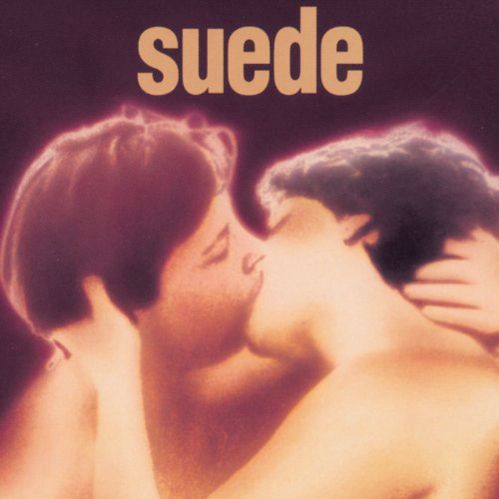
The fastest selling debut album for almost ten years, winner of the Mercury Music Prize and an LP to beat the absolute tar out of
Morning Glory, Parklife and the Weller-lite that was
Moseley Shoals.
Being a broke teenager in 1994, I could afford to waste my pocket money in HMV or the Virgin Megastore so I picked up my copy of
Suede from a shady gentleman selling bootleg tapes on O’Connell Bridge in Dublin.
So many tracks you couldn’t get sick of, I was already familiar with ‘Animal Nitrate’ because all I watched in those days was MTV (in those halcyon days when it played, y’know,
music as opposed to so much reality bullshittery).
The tape was banjaxed after a month or so where nothing else saw the inside of my Walkman, with Brett Anderson and Bernard Butler conjuring such masterpieces as ‘The Drowners,’ ‘Pantomime Horse’ and the brilliant ‘She’s Not Dead.’
I was too young to appreciate The Smiths in their pomp but this was ‘The Queen Is Dead’ for the 90s, Anderson every bit as compelling a frontman as Morrissey before the departure of Butler and the descent into kitsch.
Radiohead – The Bends (Eoghan Doherty)
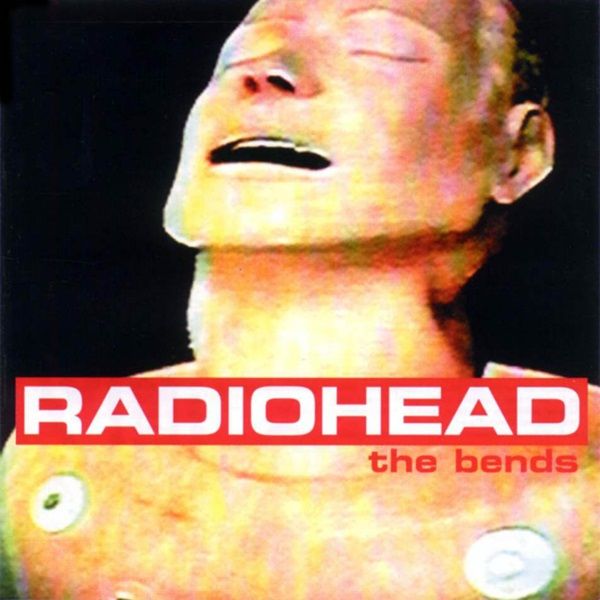
Arriving to the pick-your-favourite-album party late I was devastatingly informed that
OK Computer by Radiohead (AKA the greatest band in the world) had already been nabbed by my ex-friend and unfortunately still current colleague Conor Heneghan.
However, all was not lost and I have been able to, albeit predictably, fall back on my second favourite album of the 1990s, Radiohead’s
The Bends. Well, it was going to be that or Celine Dion’s
Falling Into You...
Following on from the success of their 1993 debut album
Pablo Honey, the Oxford fivesome were eager to move away from the pop world of the MTV generation and their one-track tag of ‘Creep’ and so, after a surprisingly successful EP launch in ’94, emerged from Nigel Godrich’s studio in 1995 with
The Bends – deeper, darker and a damn sight better than anything that they’d produced before.
For this JOE, there are so many happy musical memories associated with
The Bends; from first hearing a brilliant band do a live cover of ‘Fake Plastic Trees’ in Belfast, to sitting at home attempting to learn the opening guitar riff of ‘My Iron Lung.’
Of course, there were also many unhappy musical memories created as I attempted to imitate Thom Yorke’s flawless falsetto on ‘(Nice Dream)’ but which only resulted in me sounding like a distressed Yeti being put down.
Nothing could beat just lying back and listening to the album though, as the multi-layered, triple-whammy of Yorke, Ed O’Brien and Jonny Greenwood on guitar, Colin Greenwood on bass and the fantastic Phil Selway on drums encouraged you to head-bang to ‘Just’, air-strum to ‘High And Dry’ and just fade out to ‘Street Spirit.’
http://www.youtube.com/watch?v=IrTB-iiecqk
If you’re unfamiliar with the masterpiece feel free to ask me for a lend, I’m pretty sure there are at least 38 copies of it currently lying around the Doherty household.
Except for you Conor Heneghan – you’re getting a lend of sweet f*ck all.
Pulp – Different Class (Sean Nolan)
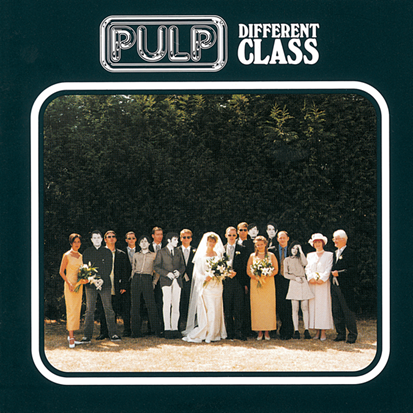
Has an album ever been so appropriately named? Famously the album that made them an overnight success after being on the go for 10 years, the 12 songs contained on
Different Class are as close to perfect as a collection of songs can get.
Jarvis Cocker was, and remains, one of the greatest lyricists in British music history and every single track on here contains gems. 'Common People', released at the very apogee of Britpop in May 1995, went to Number 2 in the charts (it was kept off by Robson & Jerome’s "Unchained Melody" so not all '90s music was good) is the best known track but every song was a classic.
'Mis-shapes', 'Disco 2000' and 'Something Changed' were also released as singles but songs like 'Pencil Skirt' and 'Bar Italia' were sleazy, clever gems in their own right and the album perfectly balanced quiet little numbers with something you could shout/sing along with after a drink or two. With a central theme of being outsiders and a bit different the album spoke to anyone who felt excluded from the norm, which covers how an awful lot of people feel, then and now.
Almost 20 years after its release it still sounds great and the sharpness of Cocker’s mind and words remains undulled. Different Class? Undoubtedly.








